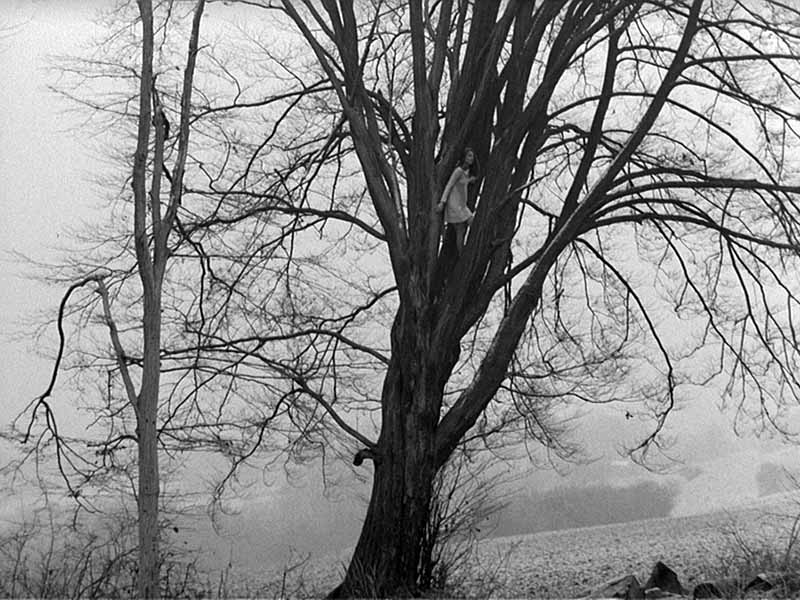Fundevogel
-
Réalisé par Claudia Von Alemann • Écrit par Claudia Von Alemann
-
Allemagne de l'Ouest (RFA) • 1967 • 22 minutes
- Réalisation :
Claudia Von Alemann - Écriture :
Claudia Von Alemann - Image :
Jorge Bodanzky, Rolf Scheimeister - Son :
Claudia Von Alemann - Montage :
Claudia Von Alemann - Musique originale :
Claudia Von Alemann
- Production (personne) :
Claudia Von Alemann - Production (structure) :
Institut für Filmgestaltung Ulm - Ayant droit :
Institut für Filmgestaltung Ulm
- N° ISAN :
non renseigné
Résumé
Pas de résumé français disponible.
"Why didn’t you leave the twelve white flowers alone? Those were your brothers – now they’ve all turned into ravens." Brothers Grimm The Twelve Brothers Fragments of fairy tales alternate with observations made by children. Documentary and staged sequences run into one another. There is no break and no contradiction between reality, the children’s behaviour and the imagination, all three are tightly intertwined.
"To remember in images means to abolish the censorship that thought expressed in words exerts a little bit. […] During filming, we hiked through the marshland, through the woods. The children played at something and we recorded it. Or we suggested something to them and they played along. Actually, the opening scene was supposed to include fear and eeriness. The kids weren’t afraid in the bunker though; they’d played there often before; they tore down the walls that were still standing. This underground, labyrinthine bunker used to be a concentration camp and a supply depot during the war. Above a door, you could still barely read: "And if it means we’ll go through hell, we’ll stand by Hitler just as well"."
(Claudia von Alemann)
"Warum hast du die zwölf weißen Blumen nicht stehen lassen? Das waren deine Brüder, die sind nun auf immer in Raben verwandelt." Brüder Grimm, Die zwölf Brüder Bruchstücke von Märchen wechseln ab mit Beobachtungen von Kindern. Dokumentarische und inszenierte Sequenzen verbinden sich miteinander. Kein Bruch und kein Gegensatz besteht zwischen der Realität, der Verhaltensweise der Kinder und der Imagination, sie gehen ineinander über.
"Sich in Bildern erinnern heißt ein wenig, die Zensur aufheben, die der in Worte gefasste Gedanke ausübt […] Beim Drehen zogen wir durch den Sumpf, durch den Wald. Die Kinder spielten etwas, und wir nahmen es auf. Oder wir schlugen ihnen etwas vor, und sie spielten mit. Eigentlich sollten in der Anfangsszene Angst und Unheimlichkeit vorkommen. Die Kinder hatten aber keine Angst in dem Bunker; sie hatten da schon oft gespielt; die Mauern, die noch standen, rissen sie ein. Dieser unterirdische, weit verzweigte Bunker war ein KZ gewesen und ein Nachschublager im Krieg. Über einer Tür stand noch, kaum lesbar: "Und sollt’ es durch die Hölle gehen, wir werden hinter Hitler stehn"."
(Claudia von Alemann)
Mot(s)-clé(s) thématique(s)
Sélections et distinctions
- 2018 • Festival international du film de Berlin - Berlinale • Berlin (Allemagne) • Berlinale Shorts Special Programme
Comment avoir accès au film ?
-
Édition DVD
- Il n'existe pas d'édition DVD à notre connaissance
-
Accès VOD
- Il n'existe pas d'accès en VOD à notre connaissance
- Distribution
- Aide sur les moyens d'accéder à un film
